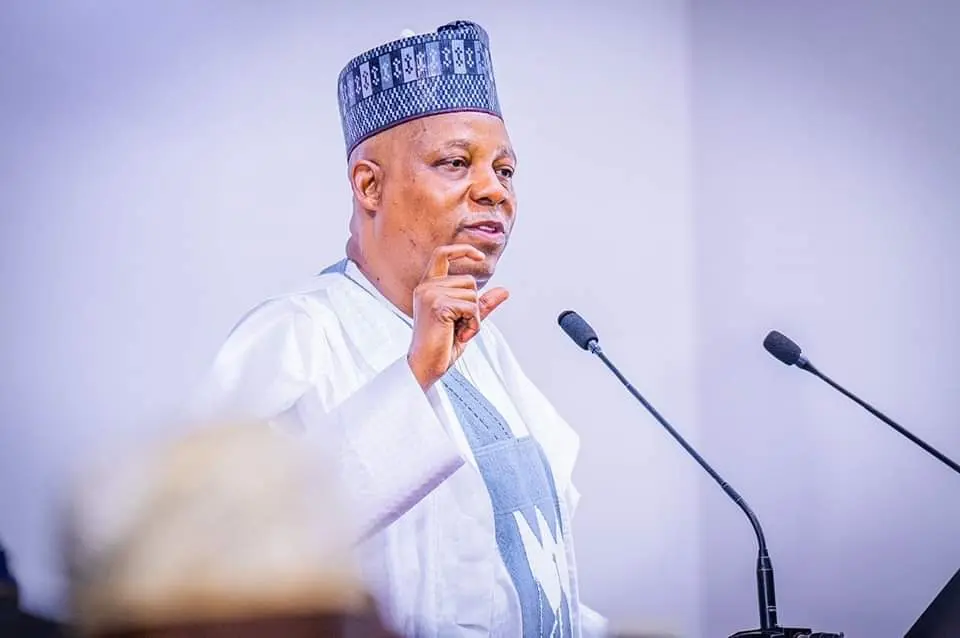The Nigerian Guild of Editors (NGE) has announced the presence of Vice-President Kashim Shettima, Governor Douye Diri of Bayelsa State, Minister of Budget & Economic Planning, Atiku Abubakar Bagudu; Minister of Information and National Orientation, Mohammed Idris; National Security Adviser (NSA), Nuhu Ribadu, and President of Nigerian Association of Chambers of Commerce, Industry, Mines and Agriculture (NACCIMA), Dele Kelvin Oye, to lead conversation on economy and security at its 20th edition of All Nigeria Editors Conference (ANEC) billed to hold on Wednesday in Yenagoa, the Bayelsa State.

A statement signed by the President, Nigerian Guild of Editors (NGE), Eze Anaba and the General Secretary, Dr Iyobosa Uwugiaren, said that the Chairman/Editor-in-Chief, THISDAY/Arise Media Group, Prince Nduka Obaigbena, will chair the conference.
“Former Governor of Ogun State, Aremo Segun Osoba; Founder/Publisher of Vanguard Newspaper, Uncle Sam Amuka; Publisher, BusinessDay, Frank Aigbogun; Senior Vice Chairman/Editor-In-Chief, LEADERSHIP Newspaper Group, Azu Ishiekwene and other media experts will be speaking on strategies for viable/sustainable media financing, opportunities and challenges in Al-generated storytelling, and other emerging issues in global journalism practice,” the NGE added.
The guild further explained that some critical institutions – in private/public, and non-governmental organisations will also be making presentations at the annual conference scheduled for November 7-9.
It noted that giving background to this year’s ANEC that will attract over 350 editors and media executives across the country, the present government and its agents had consistently argued that the federal government had been pursuing audacious reforms to reconstruct macro-economic situations it met on ground, for stability and development.
According to the editors, “Their argument is that the petrol fiscal subsidy was moderately jettisoned initially, and foreign exchange reforms had led to the unification of the markets and a market-reflective exchange rate. They have also argued that in order to assuage the inflationary effects of these reforms on the most vulnerable, the government had been implementing temporary cash transfers to reach over 15 million households, with efforts also being made to tighten monetary policy and refocus the Central Bank of Nigeria (CBN) on its core mandate of maintaining price stability.”


